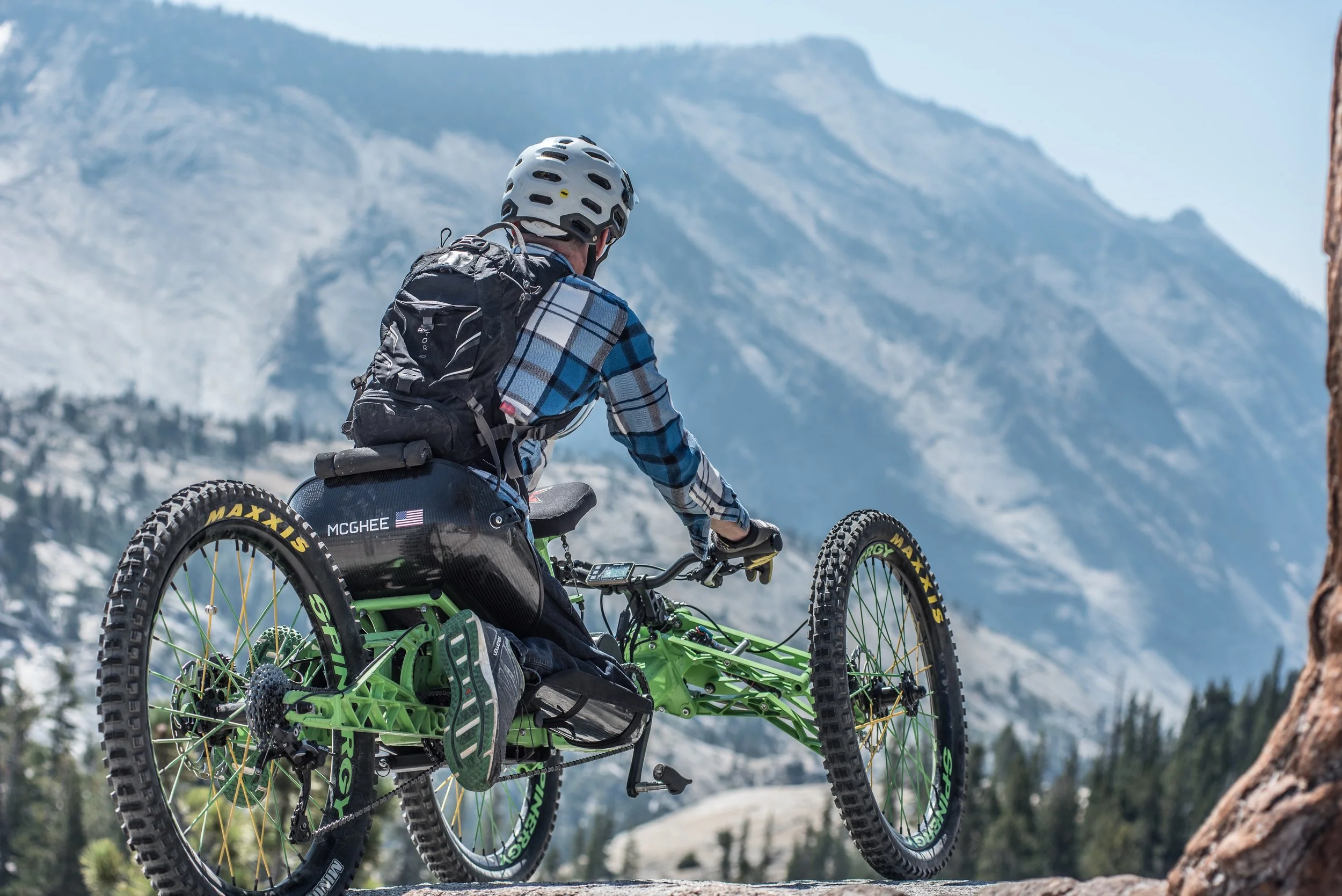Photo by Jeff Fox
In my travels, i have run into a problem: There is no way for me to know if i can do a trail or not. The information is just not out there. Refer to helicopter rescue in previous blog. I feel so much anxiety before going out for a ride in an unfamiliar area or on a trail that's new to me. The options are to schedule someone to go with me or stick to trails i know, but neither of those things is in the cards if i am traveling alone for a speaking gig or something. In this case, i will stop at a local bike shop and get some advice, but that is usually to just stick to the fire roads and that's no fun!
After a few mishaps, i took it upon myself to contact MTB Project. They are the number one resource for trail information for mountain bikers. If you ride, you use their app. I sent a heartfelt email about the problems i have run into, explaining the need to document trail accessibility information for adaptive riders, and they responded with a vehement 'YES!'. They insisted that this was something they have wanting to do for a long time now and The UnPavement was born.
Title: The UnPavement
Slogan: More Than Access
Brief Description: In partnership with MTB Project, helping adaptive riders navigate more wild places confidently and safely by providing detailed trail accessibility information because everyone should have a relationship with nature that does not depend on concrete.
Mission Statement: 'The UnPavement' is about removing the pavement of our minds. Many wheelchair users feel stuck, relegated to a life on the pavement, finding themselves staring into the wilderness wishing they could go there. Adaptive bikes get them out there, but knowing if they can do a trail on their own is the problem. That's where we come in. The UnPavement and MTB Project are out there, documenting the information necessary for adaptive riders to know exactly what they are getting into. Eliminating the surprises...and therefore the anxiety...allows individuals living with disabilities to enjoy more of the wild places this world has to offer and to get home safely when the adventure is done.
Photo by Nick Isabella
What does this mean in practice?
I will be documenting my trail experiences with video, pictures and detailed descriptions, all to be presented on a Trail Blog. This blog will be linked to by MTB Project for each specific trail that has been documented. This link will point to "Accessibility Information" and indicate a rating system:
- Can navigate trail solo
- Ride buddy advised
- Help Crew advised
- Do not attempt trail
Each description will be very detailed. "At mile 6.47 you will encounter a narrow cambered portion of the trail with an uphill rock and will need help around it. See picture."
Advice on how best to prepare (gearing, tire inflation, equipment, etc) will also be included. Not having the luxury of being able to walk your bike over technical terrain or walk it out if its damaged, makes preparation for adaptive riders that much more crucial.
The goal is safety. Know before you go so you can not only enjoy the ride, but get home safely. The concept of More Than Access is about quality of life. I want to do more than just be able get in the front door and be able to use the bathroom. I want to be able to explore the wild little corners of this earth confidently.
Photo by Jeff Fox
We kick things off in January, starting with San Diego, since its my hometown and year-round riding. We will start with the most popular trails in the most popular areas, branching out more and more, collecting information over the years, recruiting other adaptive riders to pitch in for the effort.




